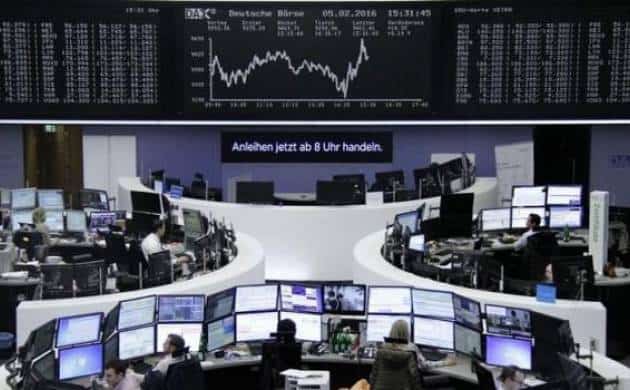London :Europe’s main stock markets rebounded on thursday following a weak finish to August, as traders digested worldwide manufacturing numbers.
Around 1600 IST, London’s benchmark FTSE 100 index was 0.1 per cent higher.
In the eurozone, Frankfurt’s DAX 30 rose 0.6 per cent and the Paris CAC 40 jumped 1.1 per cent compared with yesterday’s close.
“The FTSE is underperforming… driven by a combination of a stronger pound and further downside pressure on commodities,” said Craig Erlam, senior market analyst at Oanda trading group.
Sterling rallied today after data showed Britain’s manufacturing activity hit a 10-month high in August, rebounding strongly from a slump triggered by the country’s vote in favour of exiting the European Union.
A stronger pound tends to hurt the overall FTSE with its composition made up of companies exporting worldwide.
The pound’s slump caused by longer-term Brexit fears lifted export orders last month, according to the closely-watched IHS Markit UK Manufacturing purchasing managers’ index.
The PMI hit 53.3 in August, up from 48.3 in July which was a 41-month low.
Analysts’ consensus forecast had been for a reading of 49 in August, just below the 50 mark that indicates growth.
Separate Markit data revealed a contraction for the eurozone’s manufacturing PMI.
“Over in the eurozone the manufacturing situation wasn’t as perky, the region-wide reading unexpectedly slipping to a three-month low of 51.7,” noted Spreadex analyst Connor Campbell.
“However, this didn’t matter to the DAX and CAC, with the euro’s slump against the pound” providing support.
In Asia today, indices were mixed after a surprise pick-up in Chinese factory activity that indicated stability in the world’s number two economy – but fuelled fears that authorities would hold off from introducing fresh stimulus.
Trading was cagey across the region following oil-linked losses in New York and ahead of tomorrow’s closely watched US jobs report that could precipitate another Federal Reserve interest rate hike.
Beijing said its purchasing managers index of manufacturing activity hit 50.4 last month, its highest level since October 2014 and suggesting the economy is stabilising following a series of policy tweaks aimed at kick-starting growth.
China’s economy is growing at its slowest rate for a quarter of a century.
PTI

